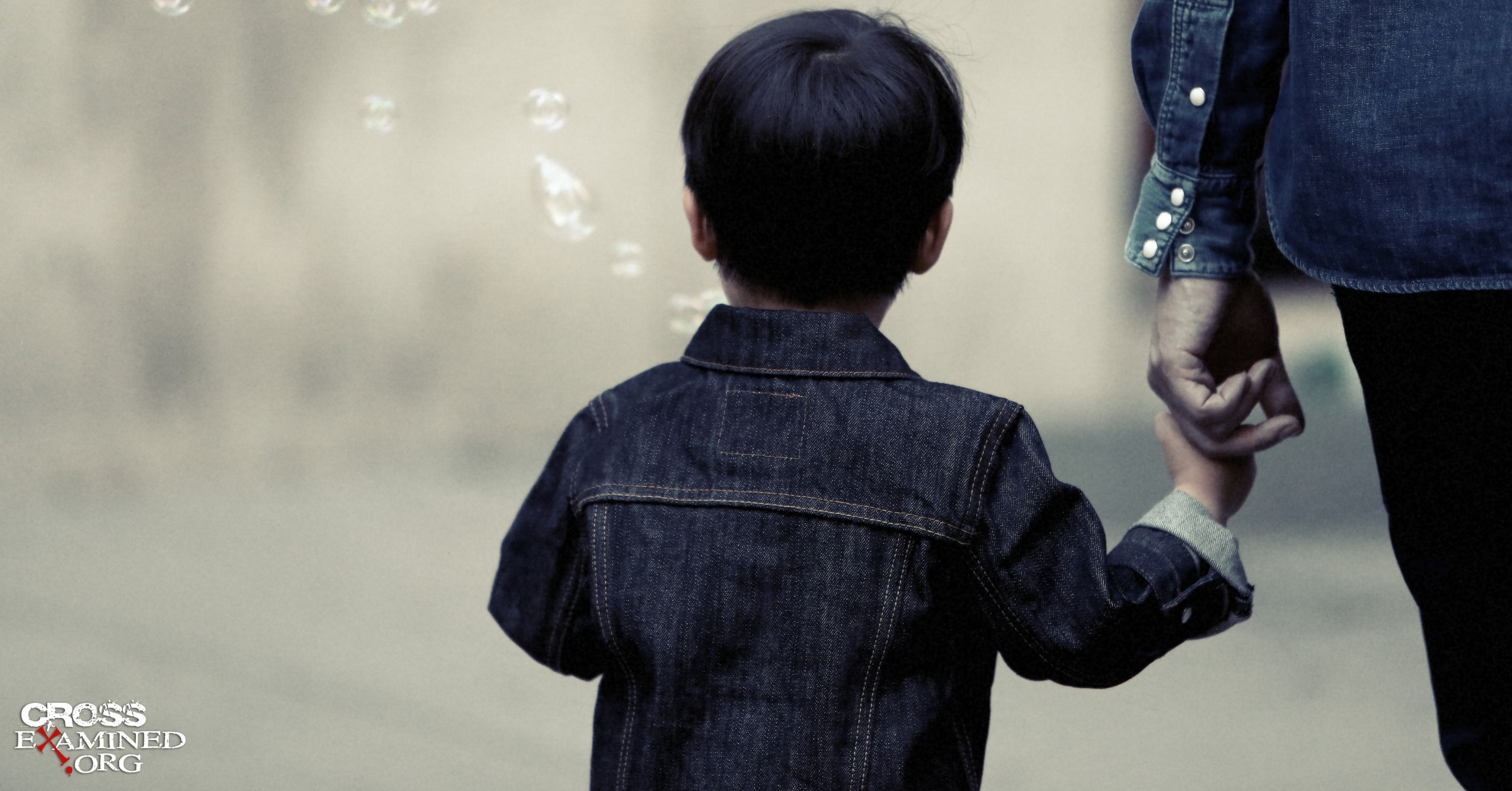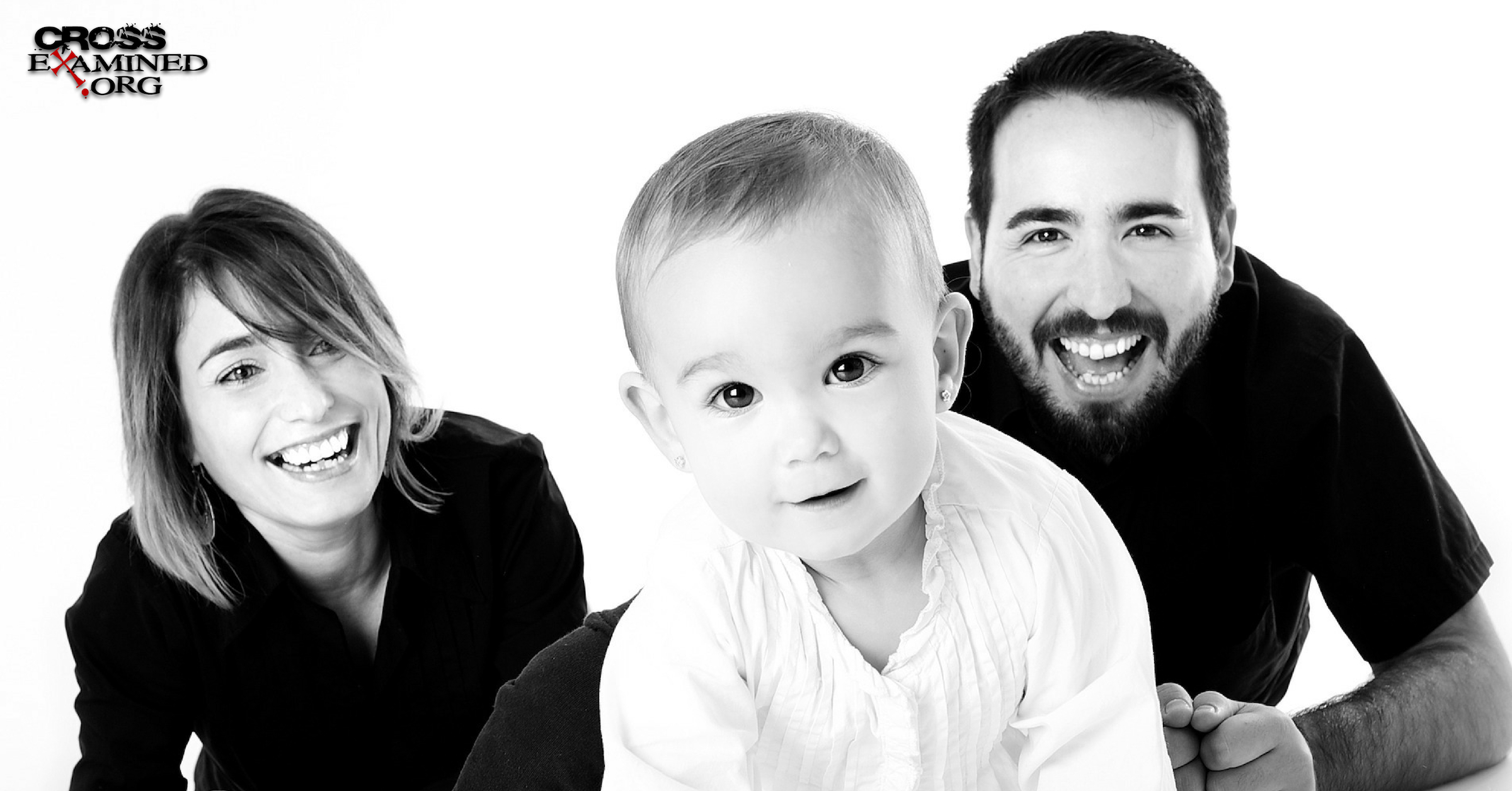News broke yesterday that popular Christian comedian and YouTuber John Crist has come forth with an admission of ongoing “sexual sin and addiction struggles” after multiple women exposed years of his sexually immoral behavior.
Honestly, my heart sank when I saw this. I love Crist’s videos. We watch them with our kids. In fact, our family had just watched one of his most popular ones, “Church Hunters,” this week! If you’re not familiar with Crist, he pokes fun at evangelical culture through his videos, and in a way that you can typically nod along with because they (unfortunately and humorously) hit close to home. Church Hunters, for example, is a parody that features a couple searching for a new church, but they’re considering all the wrong criteria…something all too common today. The video actually made for a great discussion with our kids about how people DO look at the wrong things, and what is most important when considering a church home.
You can read a detailed article with the accusations and Crist’s own statement here. In that article and some common responses, I’ve seen to it on social media, I’ve noticed three areas of serious confusion that both Christians and nonbelievers sometimes have about this kind of news:
Confusion 1: Thinking popular Christians are more immune to sin than others.
Honestly, I feel this point is so obvious that it’s embarrassingly uninsightful to point out. But consider this statement in the article from one of the women who says she was emotionally devastated by her encounters with Crist:
“I was truly blinded by his celebrity status…There were a few moments I thought, ‘Hey, this is kind of weird,’ but the same phrase kept playing through my head that stopped me from leaving: ‘It’s OK. He’s a Christian. He won’t do anything inappropriate.’”
The naivety of that last statement is mind-blowing. A Christian wouldn’t do anything inappropriate? May we all be mindful of the following biblical truth:
All have sinned and fall short of the glory of God (Romans 3:23).
All.
While we may feel disappointed when we learn of the moral failings of Christians we appreciate, admire, or learn from, we should never be shocked. Christians are able to sin just as nonbelievers are. The Bible never claims that we become perfected in this life—only that when we put our trust in Jesus for the forgiveness of our sins, we will someday stand before the Lord clothed in his righteousness (2 Corinthians 5:21). Of course, saving faith doesn’t see that as a license to sin—we should never sin so that “grace may abound” (Romans 6:1).
Confusion 2: Assuming that popular Christians should be seen as church leaders.
Social media is buzzing with commentary on Crist, and a good number of people are referring to him as a fallen Christian “leader.”
There’s an important distinction to be made here: John Crist is a popular Christian, but that doesn’t mean anyone should consider him to be a Christian leader.
Equating the two things has become a real problem in our culture. Given the nature of social media, anyone can build a platform and influence others. But just because a person identifies as a “Christian” doesn’t mean they teach biblically sound doctrine or faithfully attempt to represent Jesus in their everyday lives. Leaders in the local church, however, are held to specific biblical standards in order to qualify as worthy of shepherding the flock (see Titus 1:5-9, for example).
One example of the confusion in this area is the following comment made by a woman on Facebook: “Crist’s exploitation of women was well-known for the past 7 years…The question is, WHY were there no consequences, and his career was allowed to flourish?”
Unless you’re confused about the difference between popular Christians and Christian church leaders, the answer to this is clear. Who would have the authority and ability to issue “consequences” and stop his career from “flourishing” if his work is outside the context of a church or church organization? People are free to enjoy social media content, however, they want. Crist was in no church position to step down from.
Do I wish that every Christian would be above reproach, whether in a position of formal church leadership or not? Yes, of course. But to think every popular Christian naturally has the same kind of accountability structures as actual leaders in the church is misguided and problematic. It results in people placing a critical light on an ambiguous notion of “the church” rather than on individual choices.
Confusion 3: Believing the failures of Christians are indicative of whether or not Christianity is true.
The article reports that “Crist’s use of his Christian reputation to gain trust contributed to at least two women—Nora and Lindsey—losing trust in Christianity altogether. Neither affiliates as a Christian today.”
Lindsey says, “I haven’t been to church in years…It’s hard. It’s hard to go into a place where you know that people know things that are going on, and they never do anything about it because they just list it as ‘bad behavior’ or something that someone can just be forgiven of and then it’s fine. It’s not fine. Even when you forgive someone, it’s important to go back and make restitution and to change your ways and change your behavior. It’s really hard to even consider participating in a community, in a body of believers, that would allow such behavior to unfold unchecked, and give it a platform. No, I don’t consider myself a Christian anymore. … I have no ill will toward the church. I don’t have bitterness there. I think a lot of people are really earnest in what they believe, and I respect that. But I want to be able to respect it more.”
Based on this statement, it seems that Lindsey doesn’t consider herself a Christian due to her disappointment in a particular Christian and the perceived lack of moral concern from the Christian masses, resulting in her inability to “respect” Christianity.
Unfortunately, this demonstrates the lack of critical thinking about worldview that is prevalent in the church today. It’s yet another example of why teaching kids apologetics (how to make a case for and defend the truth of Christianity) is absolutely critical.
Christianity does not become more or less “respectable,” depending on whether your favorite Christian comedian lives consistently within his stated beliefs—even when it affects you personally.
It also doesn’t become more or less respectable, depending on how many people have heard about his moral failings and have rallied to collectively bring them to light.
There is just one question that should determine if you should be a Christian:
Is Christianity true?
That’s it.
End of story.
If Christ hasn’t been raised, your faith is in vain (1 Corinthians 15:14). That’s the truth test, and nothing else.
You may be hurt by other Christians; you may be hurt by someone in your local church, you may be disenchanted with leaders who presume to represent Christianity but do so poorly, you may not like what the Bible says on some matters, you may wish the world were different…but none of this should logically substitute for an objective investigation of the evidence for the truth of Christianity (see these books for help having these conversations with your kids).
If Christianity is true, we should be Christians in spite of bad experiences. The question isn’t whether John Crist is trustworthy; it’s whether Jesus is. That’s not to minimize the hurt done in the name of Christ (a subject outside of my scope here), but rather to refocus our kids on the objective questions that matter most.
I hope that John Crist’s statement of repentance is sincere and that he emerges from this experience as a more committed follower of Christ. In the meantime, let’s recognize this as nothing more than what it is: a popular Christian has admitted a long pattern of immoral behavior and needs to address it personally, with those he hurt, and with the Lord.
Let’s pray that good will come from this, so Crist can better use his influence in the future for the glory of God.
Recommended resources related to the topic:
So the Next Generation will Know by J. Warner Wallace (Book and Participant’s Guide)
Talking with Your Kids about God: 30 Conversations Every Christian Parent Must Have by Natasha Crain (Book)
Keeping Your Kids on God’s Side: 40 Conversations to Help Them Build a Lasting Faith by Natasha Crain (Book)
Courageous Parenting by Jack and Deb Graham (Book)
Proverbs: Making Your Paths Straight Complete 9-part Series by Frank Turek DVD and Download
Forensic Faith for Kids by J. Warner Wallace and Susie Wallace (Book)
God’s Crime Scene for Kids by J. Warner Wallace and Susie Wallace (Book)
Natasha Crain is a blogger, author, and national speaker who is passionate about equipping Christian parents to raise their kids with an understanding of how to make a case for and defend their faith in an increasingly secular world. She is the author of two apologetics books for parents: Talking with Your Kids about God (2017) and Keeping Your Kids on God’s Side (2016). Natasha has an MBA in marketing and statistics from UCLA and a certificate in Christian apologetics from Biola University. A former marketing executive and adjunct professor, she lives in Southern California with her husband and three children.
Original Blog Source: http://bit.ly/2XqLx3B










